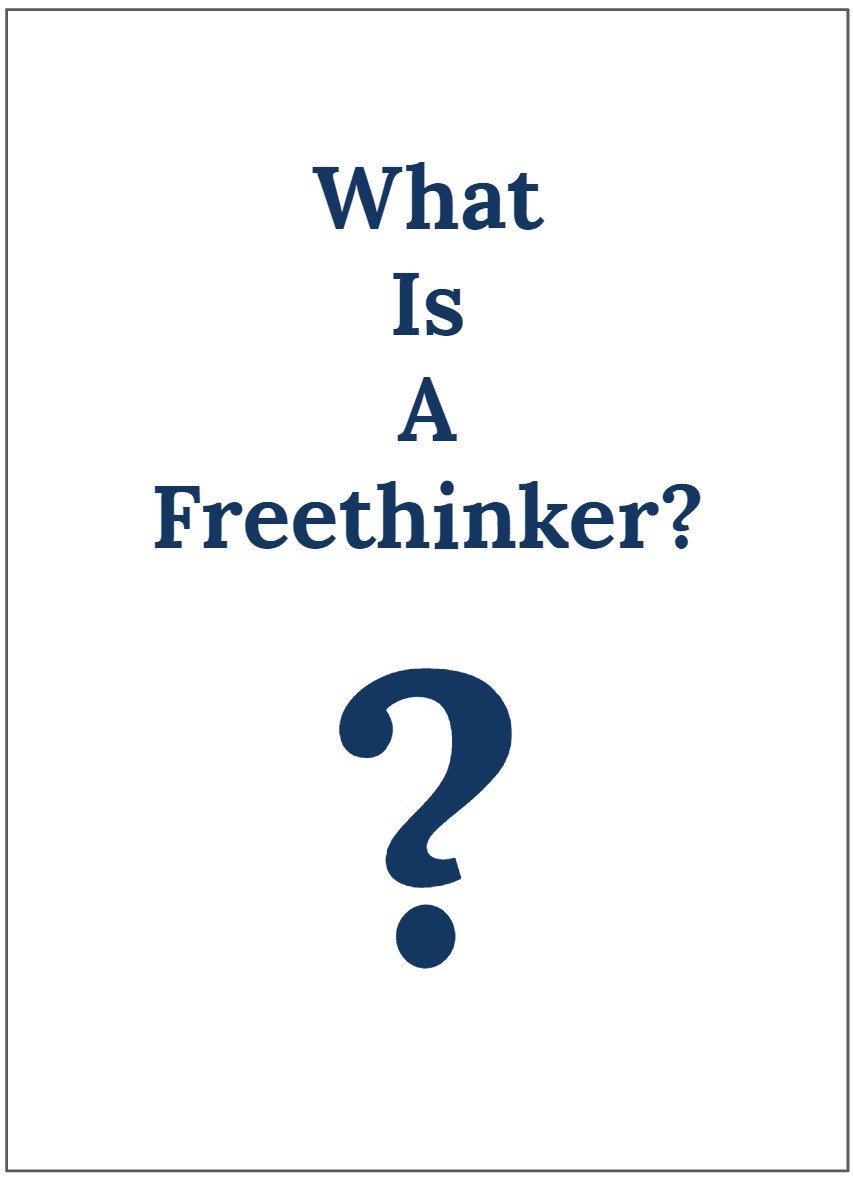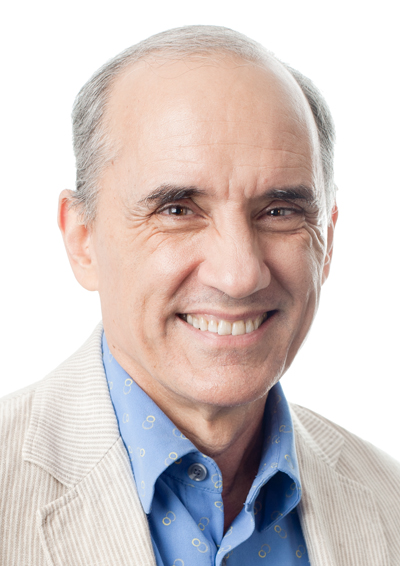What Is A Freethinker?
free-think-er n. A person who forms opinions about religion on the basis of reason, independently of tradition, authority, or established belief. Freethinkers include atheists, agnostics and rationalists.
No one can be a freethinker who demands conformity to a bible, creed, or messiah. To the freethinker, revelation and faith are invalid, and orthodoxy is no guarantee of truth.
How do freethinkers know what is true?
Clarence Darrow once noted, "I don't believe in God because I don't believe in Mother Goose."
Freethinkers are naturalistic. Truth is the degree to which a statement corresponds with reality. Reality is limited to that which is directly perceivable through our natural senses or indirectly ascertained through the proper use of reason.
Reason is a tool of critical thought that limits the truth of a statement according to the strict tests of the scientific method. For a statement to be considered true it must be testable (what evidence or repeatable experiments confirm it?), falsifiable (what, in theory, would disconfirm it, and have all attempts to disprove it failed?), parsimonious (is it the simplest explanation, requiring the fewest assumptions?), and logical (is it free of contradictions, non sequiturs, or irrelevant ad hominem character attacks?).
Do freethinkers have a basis for morality?
There is no great mystery to morality. Most freethinkers employ the simple yardsticks of reason and kindness. As author Barbara Walker notes: "What is moral is simply what does not hurt others. Kindness . . . sums up everything."
Most freethinkers are humanists, basing morality on human needs, not imagined "cosmic absolutes." This also embraces a respect for our planet, including the other animals, and feminist principles of equality.
Moral dilemmas involve a conflict of values, requiring a careful use of reason to weigh the outcomes. Freethinkers argue that religion promotes a dangerous and inadequate "morality" based on blind obedience, unexamined ultimatums, and "pie-in-the-sky" rewards of heaven or gruesome threats of hell. Freethinkers try to base actions on their consequences to real, living human beings.
Do freethinkers have meaning in life?
Freethinkers know that meaning must originate in a mind. Since the universe is mindless and the cosmos does not care, you must care, if you wish to have purpose. Individuals are free to choose, within the limits of humanistic morality.
Some freethinkers find meaning in human compassion, social progress, the beauty of humanity (art, music, literature), personal happiness, pleasure, joy, love, and the advancement of knowledge.
Doesn't the complexity of life require a designer?
The complexity of life requires an explanation. Darwin's theory of evolution, with cumulative nonrandom natural selection "designing" for billions of years, has provided the explanation. A "Divine Designer" is no answer because the complexity of such a creature would be subject to the same scrutiny itself.
Even a child knows to ask: "If God made everything, then who made God?"
Freethinkers recognize that there is much chaos, ugliness and pain in the universe for which any explanation of origins must also account.
Why are freethinkers opposed to religion?
Freethinkers are convinced that religious claims have not withstood the tests of reason. Not only is there nothing to be gained by believing an untruth, but there is everything to lose when we sacrifice the indispensable tool of reason on the altar of superstition.
Most freethinkers consider religion to be not only untrue, but harmful. It has been used to justify war, slavery, sexism, racism, homophobia, mutilations, intolerance, and oppression of minorities. The totalitarianism of religious absolutes chokes progress.
Hasn't religion done tremendous good in the world?
Many religionists are good people--but they would be good anyway.
Religion does not have a monopoly on good deeds. Most modern social and moral progress has been made by people free from religion--including Elizabeth Cady Stanton, Susan B. Anthony, Charles Darwin, Margaret Sanger, Albert Einstein, Andrew Carnegie, Thomas Edison, Marie Curie, H. L. Mencken, Sigmund Freud, Bertrand Russell, Luther Burbank and many others who have enriched humanity.
Most religions have consistently resisted progress--including the abolition of slavery; women's right to vote and choose contraception and abortion; medical developments such as the use of anesthesia; scientific understanding of the heliocentric solar system and evolution, and the American principle of state/church separation.
Do freethinkers have a particular political persuasion?
No, freethought is a philosophical, not a political, position. Freethought today embraces adherents of virtually all political persuasions, including capitalists, libertarians, socialists, communists, Republicans, Democrats, liberals and conservatives. There is no philosophical connection, for example, between atheism and communism. Some freethinkers, such as Adam Smith and Ayn Rand, were staunch capitalists; and there have been communistic groups which were deeply religious, such as the early Christian church.
North American freethinkers agree in their support of state/church separation.
Is atheism/humanism a religion?
No. Atheism is not a belief. It is the "lack of belief" in god(s). Lack of faith requires no faith. Atheism is indeed based on a commitment to rationality, but that hardly qualifies it as a religion.
Freethinkers apply the term religion to belief systems which include a supernatural realm, deity, faith in "holy" writings and conformity to an absolute creed.
Secular humanism has no god, bible or savior. It is based on natural rational principles. It is flexible and relativistic--it is not a religion.
Why should I be happy to be a freethinker?
Freethought is reasonable. Freethought allows you to do your own thinking. A plurality of individuals thinking, free from restraints of orthodoxy, allows ideas to be tested, discarded or adopted.
Freethinkers see no pride in the blind maintenance of ancient superstitions or self-effacing prostration before divine tyrants known only through primitive "revelations." Freethought is respectable. Freethought is truly free.
How can I support freethought?
Join the Freedom From Religion Foundation, Inc., an association of freethinkers working to keep the state and church separate, and to educate the public about the views of nontheists. Founded in 1978, the Foundation takes legal action against First Amendment violations, speaks out for freethinkers through the media and university debates, prints freethought books and literature, and publishes Freethought Today, the only freethought newspaper in the United States.
Membership, which includes Freethought Today, is $40.00(U.S.)/individual and $50.00(U.S.)/household.
Send your check to: FFRF, Inc., PO Box 750, Madison WI 53701.

